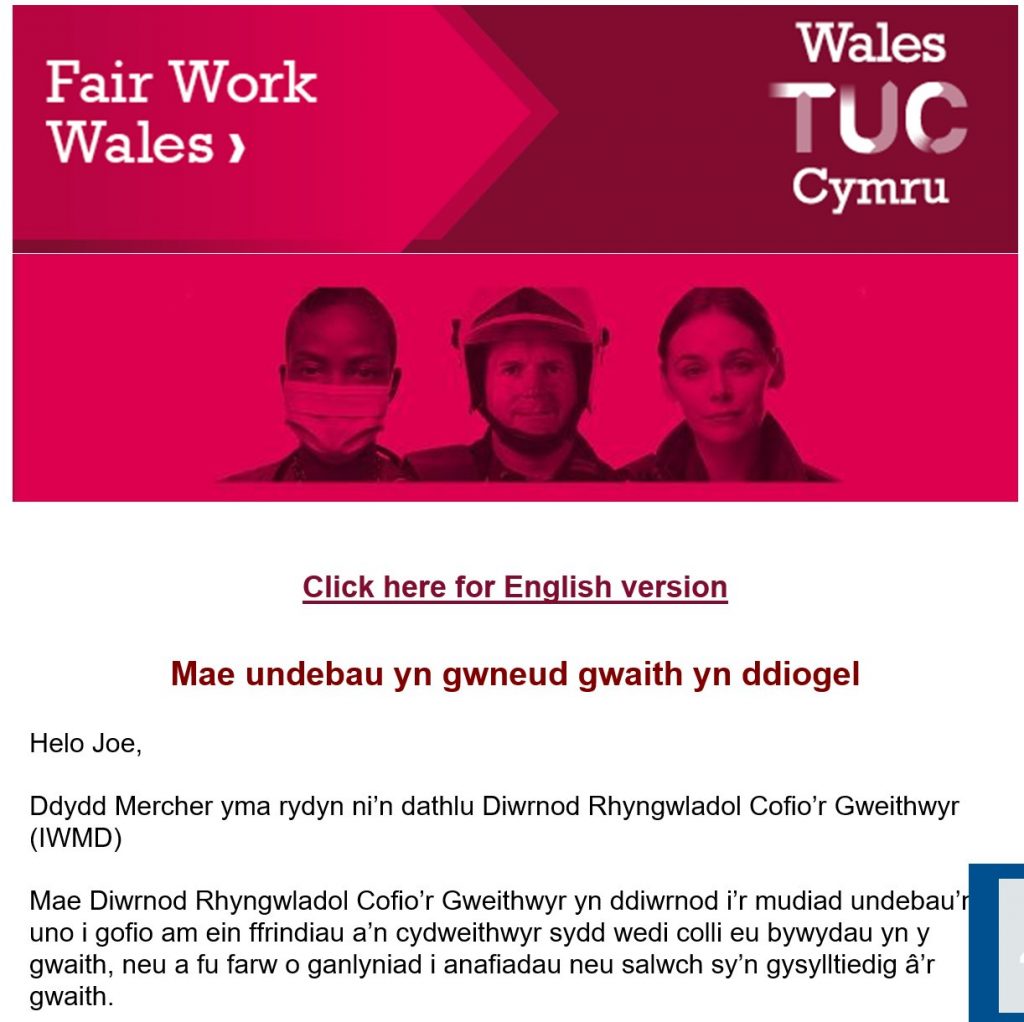Last year, 150 Alberta workers lost their lives on the job.
Families and co-workers were devastated. There was an empty spot at many tables, conversations will be missed forever, there are deep regrets because there was no chance to say I love you one more time.
Then came COVID-19. When we first heard of the new disease overseas, most of us assumed it would never land it Canada. We thought Western medicine would save us.
We were wrong. When the carnage arrived, borders were closed, civil restrictions put in place, visitors restricted in health care settings, continuous masking was required, a Joint Statement negotiated, single-site orders, AFD payments, isolation measures, mental health concerns, N95 respirators locked up, overtime, burnout, short staffing, and the list goes on.
All you need to do is look around at your workplace to see the stress on your co-workers’ faces.
Conversations are different. Who’s talking about a winter vacation or summer holidays now? Who’s thinking about an upcoming wedding invitation? Instead we have restrictions on attending a funeral to say goodbye. Who thought we’d ever need an invitation to attend a funeral for a dear friend or family member?
COVID units are over capacity, nurses must hold up iPads so family members can say goodbye. Imagine the mental toll that takes on those nurses? Resilience is a word employers rely on and workers have come to hate.
Despite all this, the Alberta Government has launched attacks on the Occupational Health and Safety Act. It is reviewing the OHS Code and considering language that would gut Joint Workplace Health and Safety Committees, eviscerate the applicable rate of pay UNA won at arbitration, and change the rules to make it harder to refuse unsafe work.
Eliminating work refusals that save lives and protect workers’ health and safety are justified in the name of “job creators” who forget that people who work and spend their wages are the economic drivers of the economy. Labour for this government has become a dirty word.
2020, a year many would like to forget, but mustn’t!
As bad a year as 2020 has been, there are positive outcomes that will take us into the future.
Employers can no longer tell workers and their unions that policies can’t be changed quickly. We have seen OHS policy changed in a week, not three years.
Meetings are now held virtually. Zoom and Skype are normal. Business gets done but the value of sitting across the table and looking someone in the eye seems to have been lost. A handshake on a deal is gone for the moment. But we will get back.
Supply chain lines for PPE are now secured. PPE is now manufactured in Canada and Alberta, including quality face shields, medical masks, and N95 respirators. No manager should hesitate to supply any PPE, no worker should hesitate to ask. This includes N95 respirators, when they are needed to perform work safely.
Health care workers are now supposedly eligible to receive vaccinations. But some workers caring for COVID patients had to meet additional criteria to be vaccinated. What’s wrong with this picture?
We must never forget that governments come and go, even in Alberta. We, the workers of Alberta, will still be here to challenge inadequate legislation.
At the time of writing, six health care workers have died and more than 8,000 have tested positive for COVID-19.
We must remember that not all health care workers who become infected with COVID recover. Some become “long-haulers,” and that will be their life’s journey. They are the walking wounded. We don’t know what medical attention they will require or what their life needs will be.
This article is not just about COVID-19. Countless other injuries occurred that caused the deaths of those 150 workers in 2020. They went to work and ended up not going home. They likely went to the hospitals where you work, where you tried to give them another shot at life.
April 28 is the day we remember that we, working people, built this country. Working people have earned the right to safe workplaces, and unions to keep them safe. All working people deserve a safe workplace
Stay Healthy! Work Safe!
This year, I want to talk to you, not about you!
Dewey Funk, Occupational Health & safety Advisor, United Nurses of Alberta

